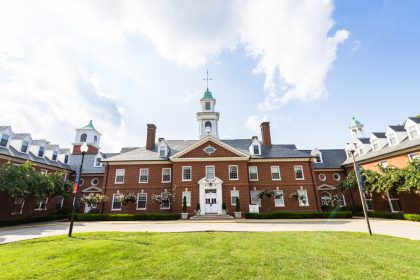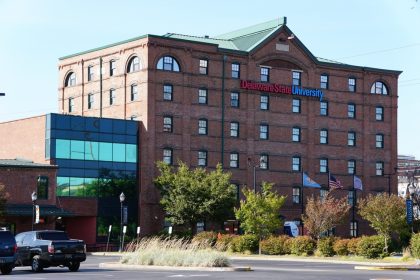In recent years, a substantial surge in the demand for skilled engineers from diverse backgrounds has reshaped industries. Companies actively seek talent from historically underrepresented communities, valuing the unique perspectives they offer. Among these communities, Black engineers have emerged as highly sought-after professionals, celebrated for their distinct viewpoints, innovative ideas and technical proficiency. To address this escalating demand, numerous historically Black colleges and universities across the United States have stepped into the spotlight. These institutions have curated exceptional engineering programs that not only educate but also empower aspiring engineers, nurturing bright minds and cultivating them into influential leaders in the field. This intensified focus on HBCU engineering programs underscores their pivotal role in bridging the diversity gap within the engineering landscape while fostering a generation of talented, diverse and innovative engineers poised to shape the future of industries worldwide.
Black Engineers: Meeting Industry Needs
The engineering landscape is evolving, and companies are recognizing the importance of diversity in their workforce. Black engineers bring invaluable perspectives to the table, enhancing creativity, problem-solving and innovation within engineering disciplines. As a result, the spotlight has turned to HBCUs, which have a rich legacy of producing top-tier engineers.
Exploring 10 Outstanding HBCU Engineering Programs
1. Howard University: Renowned for its engineering excellence, Howard offers various engineering disciplines, fostering a culture of innovation and academic rigor.
2. North Carolina A&T State University: With a strong emphasis on research and development, N.C. A&T’s engineering programs prepare students for real-world challenges.
3. Florida A&M University: FAMU stands out with its commitment to hands-on learning experiences, integrating theory with practical application.
4. Tuskegee University: Known for its legacy of producing exceptional engineers, Tuskegee’s programs emphasize critical thinking and leadership skills.
5. Hampton University: Hampton’s engineering programs prioritize experiential learning and provide students with opportunities for internships and industry collaborations.
6. Morgan State University: Morgan State’s engineering initiatives focus on cutting-edge technologies, equipping students with in-demand skills.
7. Clark Atlanta University: With a multidisciplinary approach, CAU’s engineering programs prepare students to address complex global challenges.
8. Southern University and A&M College: Known for its strong community engagement, Southern University offers engineering programs that emphasize social impact.
9. Alabama A&M University: AAMU’s engineering curriculum emphasizes innovation and entrepreneurship, nurturing future industry leaders.
10. Delaware State University: DSU’s engineering programs provide a holistic education, emphasizing teamwork and practical problem-solving.
The Impact of HBCU Engineering Programs
These HBCUs play a crucial role in shaping the future of engineering by providing a supportive environment, mentorship opportunities and access to cutting-edge resources. Graduates from these programs enter the workforce equipped not only with technical expertise but also with a strong sense of community and purpose.
As the demand for diverse engineering talent continues its rapid ascent, these academic institutions take center stage, consistently churning out a cadre of exceptional Black engineers poised to make substantial contributions across diverse industries. These institutions stand as beacons of academic prowess and inclusivity, fortifying a brighter trajectory for engineering and technology. Their unwavering commitment to academic excellence and innovation serves as the cornerstone for the transformation of industries and the cultivation of a more dynamic workforce.
Through a dedicated culture of empowerment, these 10 HBCUs intricately weave together mentorship, practical experience and academic rigor, sculpting students into not just skilled engineers, but visionary leaders. They serve as incubators for brilliance, nurturing diverse talents and honing the skills necessary to thrive in today’s ever-evolving landscape of technology and engineering.
By propelling forward a cohort of talented and diverse engineers, these HBCUs exemplify their indispensable role in meeting the burgeoning demands of a rapidly changing world. They not only bridge the gap in representation within the engineering sphere but also fuel innovation, driving progress and shaping a future where diversity, excellence and inclusion are the keystones of success.
This story was created using AI technology.

















